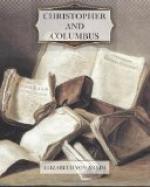This was in the November before America’s coming into the war. The feeling in Acapulco was violently anti-German. The great majority of the inhabitants, permanent and temporary, were deeply concerned at the conduct of their country in not having, immediately after the torpedoing of the Lusitania, joined the Allies. They found it difficult to understand, and were puzzled and suspicious, as well as humiliated in their national pride. Germans who lived in the neighbourhood, or who came across from the East for the winter, were politely tolerated, but the attitude toward them was one of growing watchfulness and distrust; and week by week the whispered stories of spies and gun-emplacements and secret stores of arms in these people’s cellars or back gardens, grew more insistent and detailed. There certainly had been at least one spy, a real authentic one, afterward shot in England, who had stayed near-by, and the nerves of the inhabitants had that jumpiness on this subject with which the inhabitants of other countries have long been familiar. All the customary inexplicable lights were seen; all the customary mysterious big motor cars rushed at forbidden and yet unhindered speeds along unusual roads at unaccountable hours; all the customary signalling out to sea was observed and passionately sworn to by otherwise calm people. It was possible, the inhabitants found, to believe with ease things about Germans—those who were having difficulty with religion wished it were equally easy to believe things about God. There was nothing Germans wouldn’t think of in the way of plotting, and nothing they wouldn’t, having thought of it, carry out with deadly thoroughness and patience.
And into this uneasy hotbed of readiness to believe the worst, arrived the Twinkler twins, rolling their r’s about.
It needed but a few inquiries to discover that none of the young ladies’ schools in the neighbourhood had been approached on their behalf; hardly inquiries,—mere casual talk was sufficient, ordinary chatting with the principals of these establishments when one met them at the lectures and instructive evenings the more serious members of the community organized and supported. Not many of the winter visitors went to these meetings, but Miss Heap did. Miss Heap had a restless soul. It was restless because it was worried by perpetual thirst,—she couldn’t herself tell after what; it wasn’t righteousness, for she knew she was still worldly, so perhaps it was culture. Anyhow she would give culture a chance, and accordingly she went to the instructive evenings. Here she met that other side of Acapulco which doesn’t play bridge and is proud to know nothing of polo, which believes in education, and goes in for mind training and welfare work; which isn’t, that is, well off.
Nobody here had been asked to educate the Twinklers. No classes had been joined by them.




